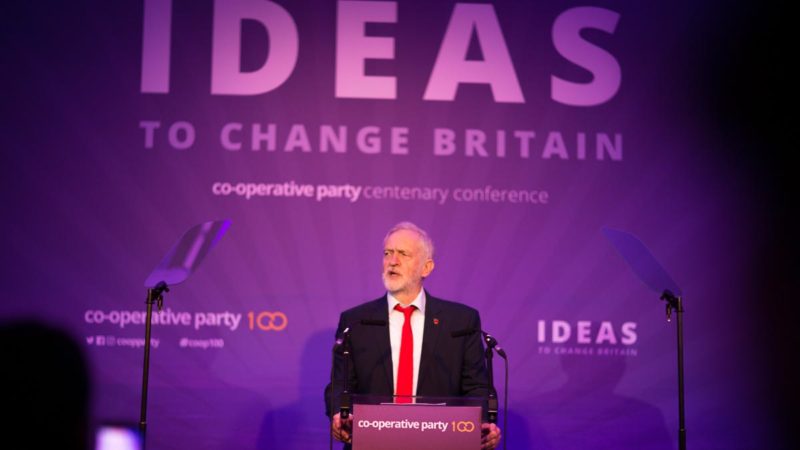Greens have responded with anger to Owen Jones' call for a Labour/Green alliance - but a similar deal has given the Co-operative Party a strong voice in British politics.

Image courtesy of the Co-operative Party.
Owen Jones’ call for a Red/Green alliance between Labour and the Green Party has stimulated quite a debate – not least on the pros and cons of the electoral alliance that has existed between the Labour Party and the Co-operative Party.
Jones proposes to replicate the Labour/Co-op alliance. Unfortunately, not all of this discussion is based on the facts or reality of the ‘Cheltenham Agreement’ signed between the Labour Party and the Co-operative Party in 1927.
Under the agreement, the Co-operative Party continues to be an independent political party, registered with the Electoral Commission. We are governed by our own National Executive Committee, we have our own members, and we have our own Party conference at which we develop and agree our own independent policy agenda: one we proactively advance day in day out.
But what we also have, via this agreement, is the ability for our members to also be members of the Labour Party, if they choose to do so (many do, but others don’t), and a commitment to stand joint candidates together at elections.
Over the last century, that has meant that we have been able to elect thousands of candidates who hold co-operative values, and are committed to advancing the cause of co-operation, to all levels of government. They have been a powerful voice for the co-operative movement in the rooms where decisions are made.
In the 20th Century, Co-operative MPs were instrumental in securing for example some of the first environmental and consumer legislation in the 1960s, the creation of a national Co-operative Development Agency in the 1970s, legal recognition for credit unions in 1979, financial support for fairtrade in the 1990s, the creation of Supporters Direct to promote fan ownership in football and of co-operative schools in the 2000s, and the creation of a credit union for the armed forces and their families in 2012.
Today, we have a record 38 Labour & Co-operative MPs in Westminster, as well as Peers, MSPs in Scotland, Assembly Members in Wales and hundreds of Councillors from Dundee to Plymouth, and Norwich to Carmarthenshire.
Switch on the BBC Parliament Channel and you will see Labour & Co-operative representatives, in Westminster, Holyrood and Cardiff Bay making the case for community owned renewable energy, fair taxes, financial inclusion, not for profit buses, fairtrade, employee ownership, tackling modern slavery and other causes at the heart of the co-operative movement.
So, when the motion to the Green Party Conference says that “the Co-operative Party has not been able to present its own unique identity or policy whilst affiliated to Labour, and for this reason has less influence over the Labour Party than the Green Party” it is just not borne out by the facts – either historically or today.
Indeed, Labour’s manifesto for the 2017 General Election had a co-operative vein running all the way through it. Not least with a commitment that the next Labour (& Co-operative) government will work with the co-operative movement to double the size of the co-operative sector: arguably the most ambitious pledge ever made by a political party to the co-operative movement.
This is a pledge that was reiterated by Jeremy Corbyn when he addressed our centenary Party Conference in October, and by John McDonnell at a recent Labour Party event – one dedicated to discussing the contribution alternative models of ownership could make in building a fairer economy that works in the interests of the many not the few.
It is true that Co-operative Party has not historically had a high public profile, but visibility isn’t the same as influence.
It is not for the Co-operative Party to tell the Green Party what is right for them – and Jonathan Bartley makes a compelling argument for why the differences between the two Parties would make any form of alliance impossible and undesirable.
This is not the case between the labour and co-operative movements which enjoy a well of shared values. Two movements with millions of members that have played an intimate role in our shared fight for the democratic and economic rights of working people for more than 100 years.
The relationship between the Co-operative Party and the Labour Party is unique – and looks set to stay that way.
Claire McCarthy is General Secretary of the Co-operative Party.
To reach hundreds of thousands of new readers we need to grow our donor base substantially.
That's why in 2024, we are seeking to generate 150 additional regular donors to support Left Foot Forward's work.
We still need another 117 people to donate to hit the target. You can help. Donate today.



